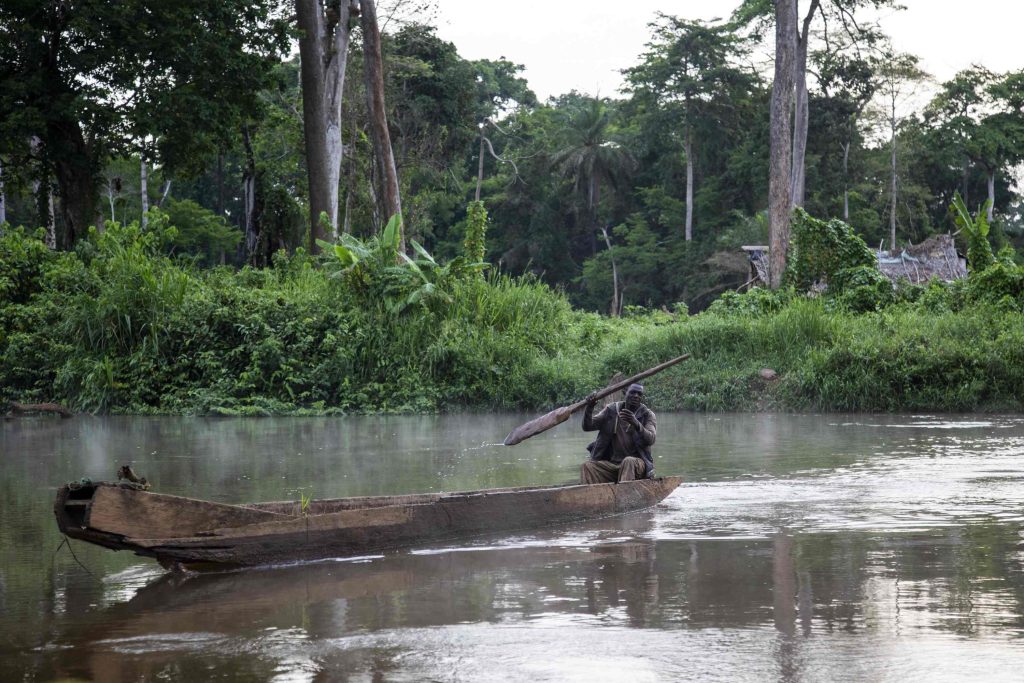
Kuete David on his pirogue on the river Mbam. Dominique Catton. Credit: SightsaversG
The Walker Institute at the University of Reading and Sightsavers convened a pivotal two-day workshop in Salima, Malawi, aimed at tackling the growing intersection of climate change and public health. The event, held on June 10–11, brought together district government representatives, health and agriculture experts, and international adaptation stakeholders to co-develop locally driven strategies for managing climate-sensitive Neglected Tropical Diseases (NTDs).
The workshop was part of the broader Climate Health in Africa Integrated Risk Research (CHAIRR) project, a ground-breaking collaboration between the Walker Institute and Sightsavers. Funded by Sightsavers, the project was designed to provide a fine-resolution understanding of how climate change is influencing the epidemiology of NTDs across ten diverse districts in Malawi.
A Science-Driven, Locally Informed Approach
At the heart of this research initiative is the development of ICICLEs—Inclusive Consultative Integrated Climate-Livelihood-Environment storylines. These district-specific narratives combine downscaled climate projections with socio-economic and environmental data to assess vulnerabilities and identify “no regret” adaptation options. The ICICLEs are informed by the Walker Institute’s “My Climate Risk” methodology, a globally recognized framework under the World Climate Research Programme.
The workshop presented the findings from the District Climate Risk Vulnerability Assessments (CRVAs) and ICICLEs, offering participants a chance to validate the data and co-create actionable adaptation plans. These plans focused on six priority NTDs: Human African Trypanosomiasis, Lymphatic Filariasis, Onchocerciasis, Schistosomiasis, Soil-Transmitted Helminths, and Trachoma.
From Data to Action
Facilitated by experts from both organizations—including Prof. Rosalind Cornforth and Dr. Celia Petty from the Walker Institute, and Dr. Richard Selby and Bright Chiwaula from Sightsavers—the workshop used interactive sessions and working groups to:
- Share district-level ICICLE storylines and climate-health-livelihood impact assessments.
- Identify key risks and sectoral vulnerabilities.
- Develop viable adaptation pathways and action plans.
- Build capacity through a “Training of Trainers” model to support long-term, bottom-up adaptation planning.
The ten districts—Karonga, Chitipa, Nkhata Bay, Mchinji, Lilongwe, Dedza, Mangochi, Zomba, Blantyre, and Nsanje—were selected for their diverse geographic and socio-economic profiles. Each faces unique climate challenges, from rising temperatures and erratic rainfall to increased flood and drought risks, all of which have direct implications for disease transmission and public health infrastructure.
Bridging Science and Policy
The workshop was not just a technical exercise—it was a policy-shaping moment. By integrating scientific evidence with local knowledge, the event aimed to influence Malawi’s national and district-level adaptation strategies. It also supported the goals of the WHO’s 2030 NTD Roadmap and aligned with the Sustainable Development Goals and the Kigali Declaration on NTDs.
According to Prof. Cornforth, “This workshop is a critical step in translating climate science into practical health interventions. It’s about empowering local actors with the tools and knowledge they need to protect their communities.”
Dr. Selby adds, “Sightsavers is committed to ensuring that climate adaptation is inclusive and equitable. This partnership with the Walker Institute is helping us understand how to better support vulnerable populations in the face of climate change.”
Looking Ahead
The outcomes of the workshop will feed into a broader regional initiative, with plans underway for a multi-year CHAIRR programme across Africa. The project also includes the development of peer-reviewed research, policy briefs, and a Climate-NTD Community of Practice to sustain momentum and foster cross-sector collaboration.
For more information, visit:

